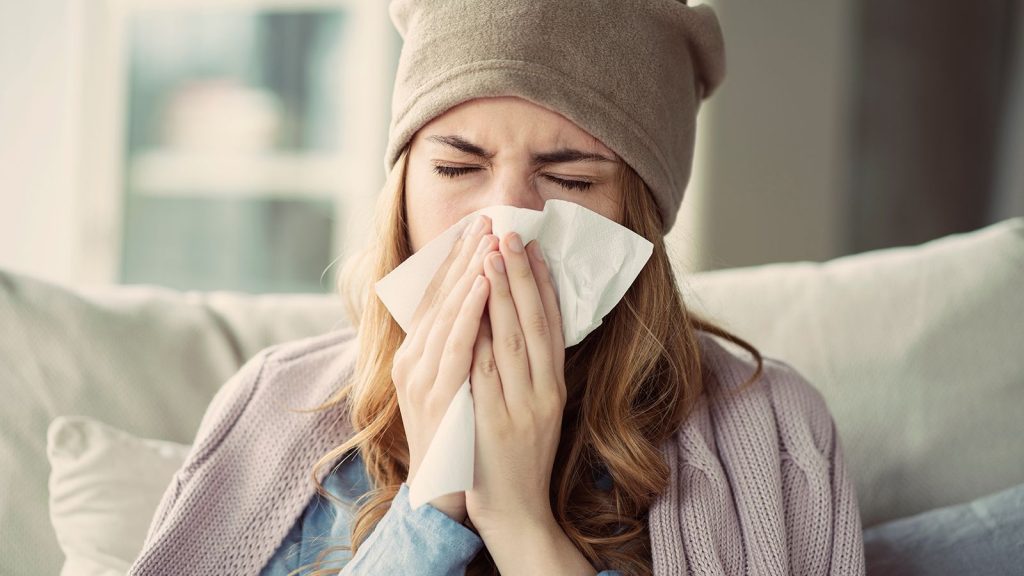The common cold and flu, a persistent adversary, disrupts our lives with its unwelcome symptoms. While there’s no magic cure, understanding how to effectively manage its discomfort is key. In this comprehensive guide, we delve into expert insights to help you navigate the common cold with precision and find relief faster.
Understanding the Common Cold and Flu
Characterized by symptoms like runny nose, sore throat, and coughing, the common cold is caused by various viruses, with rhinovirus being the most prevalent. Experts emphasize the importance of distinguishing a cold from other illnesses like allergies, influenza, or even COVID-19, as each demands a specific approach.
Fast-tracking Recovery: What Works and What Doesn’t
What Doesn’t Help
Antibiotics
Contrary to common misconceptions, antibiotics have no impact on viral infections like the common cold. Using them can lead to unnecessary side effects and contribute to antibiotic-resistant infections.
Alcohol and Caffeine
Avoiding alcohol, coffee, and caffeinated drinks during a cold is advised. These substances can worsen dehydration, a condition common during illness.
Smoking or Vaping
Smoking or vaping exacerbates airway irritation and inflammation, hindering the body’s natural recovery process.
What Works: Over-the-Counter Medications
Understanding the components of cold medicines is crucial. Analgesics, decongestants, expectorants, antihistamines, and cough suppressants play distinct roles. Tailoring your choice based on symptoms and personal health considerations is essential.
Over-the-Counter Pain Relievers
Effective in addressing body aches and headaches, these medications should be used in moderation, following label instructions.
Decongestants
Oral decongestants and sprays can alleviate nasal congestion, but individuals with heart or blood pressure issues should exercise caution.
Cough Medicines
From expectorants to cough suppressants, selecting the right medication depends on individual needs. Notably, caution is advised when administering these to children.
Read More: What Are Milia (Milialar)—And How Can You Get Rid of Them?
Best Remedies for Cold Symptoms
Lifestyle and Behavioral Approaches
Stay Home if You Feel Sick
Prevent the spread of the cold and aid your recovery by staying home during the contagious phase of the illness.
Hydrate, Hydrate, Hydrate
Maintaining adequate hydration aids in mucus flow, preventing complications like sinus infections or bronchitis.
Get Enough Sleep
Quality sleep supports the immune system’s fight against the cold. Consistent, ample rest is crucial during the recovery phase.
Moderate Exercise
Engaging in light to moderate exercise, such as walking, promotes recovery without overexerting the body.
Nasal and Respiratory Care
Saline Nasal Spray
Effectively reducing congestion, saline nasal sprays are safe when used as directed, providing relief without side effects.
Saline Rinses
Clearing sinuses, saline rinses can be administered through sprays or neti pots, complementing decongestant use during severe congestion phases.
Humidify Your Environment
Long, steamy showers, steam inhalers, and humidifiers contribute to keeping mucus fluid, aiding in its expulsion from the respiratory system.
Dietary Considerations
Honey for Cough Relief
Proven as an effective remedy, honey helps soothe coughs and possesses anti-inflammatory and antibacterial properties.
Hot Soups and Tea
Chicken noodle soup, accompanied by hot tea with ginger, lemon, or honey, provides essential nourishment and steam benefits.
Incorporate Ginger
Ginger, renowned for its antioxidant properties, can be a valuable addition to teas, broths, and various dishes during a cold.
Conclusion
In conclusion, navigating the common cold and flu effectively involves a holistic approach, combining appropriate medications, lifestyle adjustments, and dietary considerations. By understanding the nuanced dynamics of the common cold, you empower yourself to not only endure but conquer its inconveniences. Implementing these expert-backed strategies will not only alleviate symptoms but also contribute to a speedier recovery, ensuring you spend less time under the weather and more time enjoying a healthy, active life.

